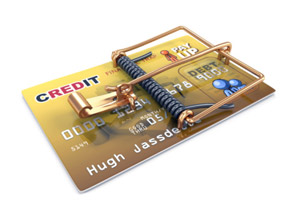8 Criteria for Choosing Your Payment Processor
 For most business people, choosing a payment processor is much like choosing a car mechanic. Unless you are knowledgeable about maintenance, parts, and pricing, you must trust that the person you go to is honest and will treat you with integrity.
For most business people, choosing a payment processor is much like choosing a car mechanic. Unless you are knowledgeable about maintenance, parts, and pricing, you must trust that the person you go to is honest and will treat you with integrity.
Unfortunately, that is not always what happens. Merchant payment processing scams are common and account for many of the large proportion of new businesses that stumble or fail, especially online. The Internet is littered with tales of companies that fell for attractive lures built on deception. The Better Business Bureau (BBB) warns: “Some business owners new to using credit cards naturally assume the promises made are legitimate and happily sign agreements to save money. It is not until after the sale is final that they realize their monetary loss.”
What to look for in a payment provider
Need a checklist of questions to ask and services to research when selecting a payment card processor? Look no further. Compare providers according to a standard set of criteria as well as specific values that are important to you.
- Fees: How do they vary? Some rates should be lower than others. Ask lots of questions about fees, such as the differences in charges for keyed cards, reward cards, corporate cards, and card not-present.
- Equipment: Does the company sell, lease, or both? Do they offer options that support virtual, mobile, and integrated payments? If something happens, what is the repair time? Are discounts offered for purchasing multiple terminals?
- Restrictions: Are there minimums for monthly or annual levels of business? Does the company only deal with a narrow range of credit cards? Are there any restrictions if your business is seasonal?
- Reputation: Do an Internet search and check out providers with business and consumer organizations like the BBB. Seek recommendations from people you trust, including successful local merchants and the trade associations you belong to.
- Contracts and/or leases: Does the contract specify particular conditions or time periods? What happens to equipment when a contract is terminated? Read the small print.
- Charges: Are there “ceilings” beyond which you’ll have to pay excess fees? How about fees for international services?
- Support: How quickly and easily can you get help? Does the processor have knowledgeable customer support and service teams? Are they available 24/7? Do they charge for this?
- Compliance: Be sure the provider offers equipment that supports industry compliance standards.
Ensure that your expectations for what you’ll pay are realistic, that you’re getting best value and service for cost, and there are no surprises that could impact your bottom line.
Do your homework
The BBB says many frauds occur because business owners are too busy or distracted to ask questions. This underscores the most crucial elements of selecting a card payment processor: Do your homework and avoid making decisions under pressure.
Do not get trapped into “bait and switch” pricing tactics. Keep in mind that lower prices do not always equal better value.
Offer of free terminals
Are you really getting a “free” terminal? One way or another, merchants end up paying unexpected fees and other charges. In addition, some “free” terminals may work only with the selling processor’s platform. That means that if your fees are too high and you want to change processors, you also have to purchase all new terminals.
Likewise, merchants who agree to lease POS terminals may also be paying with more than they need to. Over the course of a 48-month lease, for example, you may end up paying 2-10 times the cost of purchasing the terminal outright. Be careful of leasing companies that may not remind you when the lease is up, allowing the charges to continue.
Hidden fees
Often buried in contracts or never made explicit, fees may be charged for activities like contract setup, termination, or cancellation, or for items such as software and customer support. Beware of anyone who takes only a few minutes to explain the rates you will pay. You should always receive a detailed, written explanation of fees for your review.
Know what you’re getting into — and be realistic
In any contract, beware of hidden conditions in small print and look twice to see if the contract is non-cancellable. Although deceptive, these contracts are often perfectly legal and therefore binding if you sign them.
So, what does a realistic view of fees look like? Charges vary and depend on multiple factors, but you can start by calculating your effective rate — the average rate you are paying for all transactions. Simply divide your total fees by the total number of transactions. This figure is a helpful baseline for comparing processors.
Then, to determine your exact costs, get an evaluation of your current statement. A detailed analysis will break down actual costs and show you exactly where your fees are coming from. (To find out what you will learn from such an evaluation, see the article “How Much Are You Actually Paying for Payment Processing?” in the Helpful Products and Services section of this issue of The Inside Connection.)
Competition for your business is fierce. That’s why you need to be sure you’re dealing with a reputable merchant services provider. The goal is for merchants to be sure they are getting full disclosure from a potential partner. When searching for one, start with the checklist above, and remember the old saying: If it sounds too good to be true, it probably is.
[cta]Are you looking for a payment partner you can rely on? Contact us at 866-944-0055 or by email.[/cta]
